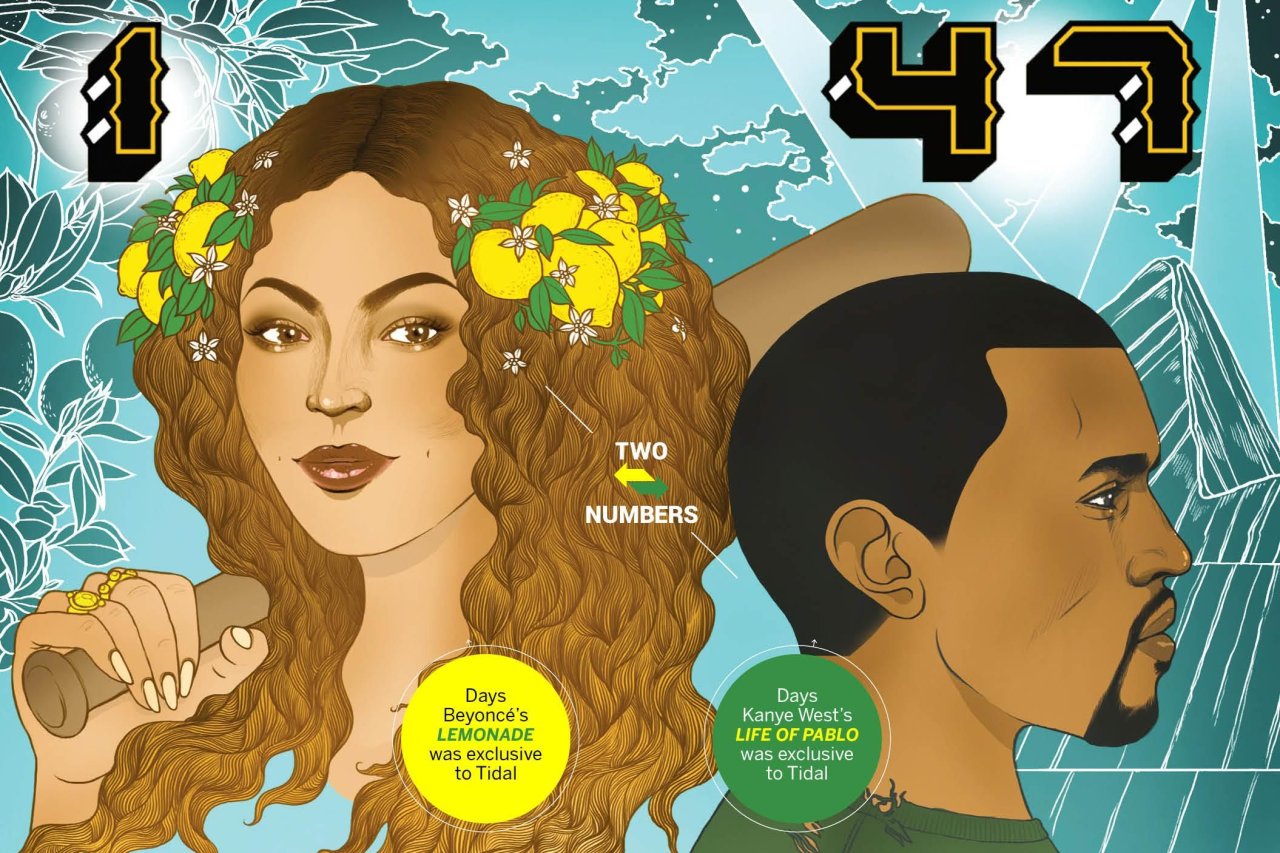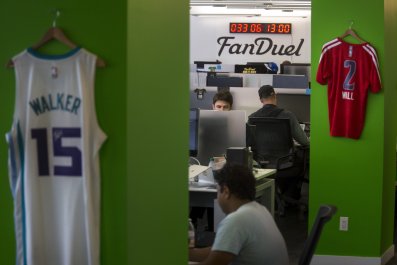Have you heard Beyoncé's new album? It's the biggest thing on Tidal. What about Drake's Views ? Don't look for it on Spotify—it was dropped as an Apple Music exclusive.
A generation ago, you could find the year's all of the biggest pop albums in one place—a Tower Records, for instance, or a Sam Goody. In the streaming era, exclusivity rules the day.
Tidal, Jay Z's embattled subscription-based service, is setting the trend. The streaming company has positioned itself as a playground for 2016's most elite pop and hip-hop releases. When Kanye West unveiled his long-awaited The Life of Pablo in February, he put it on Tidal. On February 15, West made a characteristically extreme proclamation. "My album will never never never be on Apple," the rapper tweeted. "And it will never be for sale.… You can only get it on Tidal."
My album will never never never be on Apple. And it will never be for sale... You can only get it on Tidal.
— KANYE WEST (@kanyewest) February 15, 2016
But Ye was bluffing. A revised version of Pablo landed on Spotify, Apple Music and Google Play at the beginning of April, 47 days after its initial release. (The lack of physical product allows West to continue making tweaks to the album, which he considers "a living breathing changing creative expression.") And when Beyoncé's new visual album, Lemonade, appeared on Tidal on April 23, the exclusivity period was much shorter: 24 hours. Lemonade 's strongest tracks, including "Hold Up" and "Sorry," have been widely interpreted as digs at the marital infidelities of her husband, Jay Z. But the real blow to Jay came a day later, when Beyoncé—who is a part owner in Tidal—made her album available on iTunes. (Make that 100 problems?)
So is the phrase "Tidal exclusive" just a marketing ploy? One Kanye West fan, Justin Baker-Rhett, was pissed enough to file a class-action lawsuit against the rapper. He contends that West fraudulently tricked millions into paying for Tidal subscriptions by claiming Life of Pablo wouldn't be available elsewhere. "Creative freedom is not a license to mislead the public," Baker-Rhett's attorney said in a statement.
Tidal, meanwhile, has reaped the benefits of name recognition and gotten a much-needed jolt in usership. The company declined to give Newsweek specific figures, but subscriptions reportedly more than doubled in the weeks after Life of Pablo, with the album garnering more than 200 million streams in its first 10 days.
The service received another unplanned boost when Prince died on April 21. The pop star was famously litigious with YouTube and removed his music from most streaming services in 2015, so fans rushed to Tidal, where his catalog resides. Don't call it an exclusive, though: Unlike The Life of Pablo, Purple Rain is pretty easy to find in your parents' record collection.
















